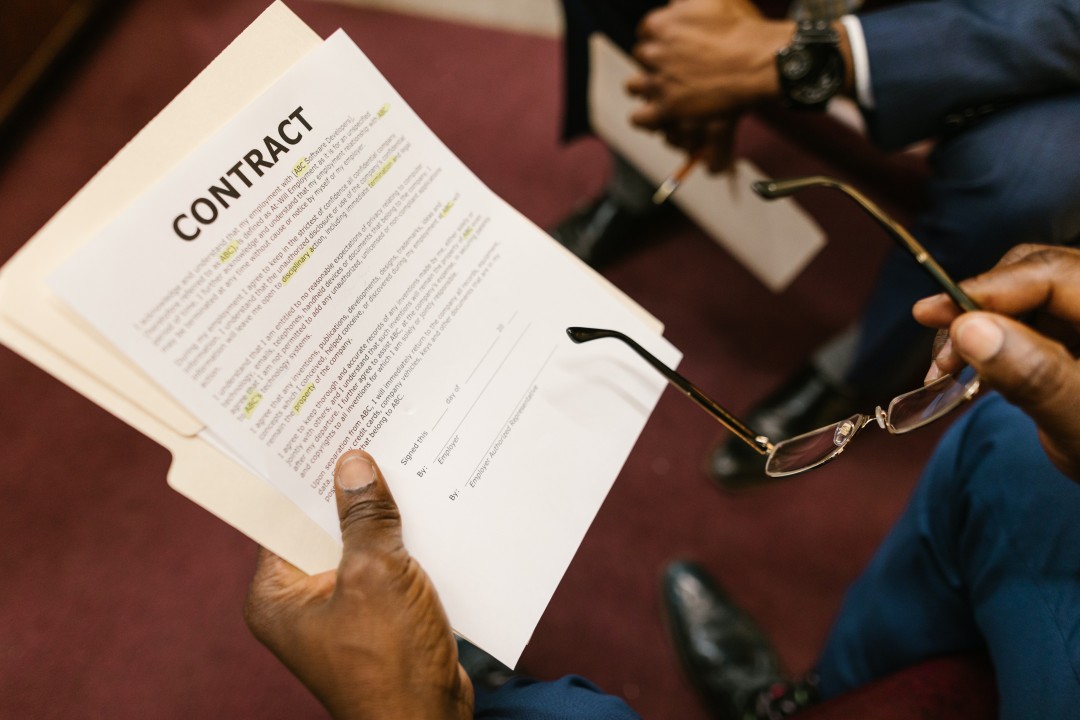 The National Law Journal on March 17 presented the Chicago Legal Departments of the Year, which highlighted in-house teams at companies in the Chicago area. We spotlighted these corporate counsel for making a positive difference in the law, at their companies and in their communities.
The National Law Journal on March 17 presented the Chicago Legal Departments of the Year, which highlighted in-house teams at companies in the Chicago area. We spotlighted these corporate counsel for making a positive difference in the law, at their companies and in their communities.
Since then, we’ve dug deeper to explore the work of Chicago-area women in corporate law. With “Two Steps Forward,” we feature people who have strived to advance the careers of women in corporate law—an ongoing, formidable challenge. At Fortune 500 companies in 2013, women made up about 22 percent of general counsel and about 15 percent of equity partners in private practice, although they total more than 47 percent of law school graduating classes, according to the American Bar Association.
We interviewed Chicago-area attorneys, scholars and business professionals to determine who consistently has led efforts to help women move ahead in the law.
Our sources helped us identify five individuals who have worked to improve the status of women in corporate departments, in law firms, at law schools and in the business community.
Laurel Bellows
 Laurel Bellows has spent much of her career reminding the legal profession that it has a long way to go before women are treated as equals with men. A business lawyer at The Bellows Law Group who counsels senior executives and corporations on employment matters, she is immediate past president of the American Bar Association and has served as chair of the ABA’s Commission on Women in the Profession. During her presidency, she appointed a task force on gender equity that issued a series of reports recommending solutions for eliminating gender bias in the legal profession.
Laurel Bellows has spent much of her career reminding the legal profession that it has a long way to go before women are treated as equals with men. A business lawyer at The Bellows Law Group who counsels senior executives and corporations on employment matters, she is immediate past president of the American Bar Association and has served as chair of the ABA’s Commission on Women in the Profession. During her presidency, she appointed a task force on gender equity that issued a series of reports recommending solutions for eliminating gender bias in the legal profession.
“It’s an issue of fairness versus injustice,” Bellows said. “If I’m going to be working as hard as I am, I want to be treated with respect.”
The solutions include making the compensation process at law firms more transparent; appointing a “critical mass” of diverse people to the firm’s compensation committee; instituting a fair and accurate allocation of billing and origination credit; implementing a formal client succession plan; and ensuring equitable compensation for lawyers working reduced hours. A companion manual outlines how general counsel can encourage diversity in their outside counsel; and a guide instructs women lawyers on how to negotiate their own compensation by providing them with techniques for understanding a firm’s compensation system and how to navigate it.
“What makes Laurel stand out is she not only recognizes problems, but she tries to develop best practices to address those problems,” said Roberta Liebenberg, a senor partner at Fine, Kaplan and Black. Liebenberg chaired the ABA gender equity task force. “She’s not afraid to call things out.”
Her efforts are paying off. Representatives from 21 companies nationwide, most of them listed in the Fortune 500, have pledged to the ABA’s Task Force on Gender Equality to encourage diversity in their outside counsel.
Michelle Kohut
For Michelle Kohut, relentless networking is the key to empowerment for female lawyers. At Corboy & Demetrio, she’s a personal injury lawyer; as president of the Women’s Bar Association of Illinois, she has expanded the group’s reach to downstate Illinois, an area traditionally underserved by the association.
“I don’t see women on the same path as men,” Kohut said. “We don’t have the classic opportunities that men do to advance their careers. We’re busy raising our families. We can’t go out on the golf course, or for dinner and a cocktail; we’re more likely to go home after a long day.”
In her role with the Women’s Bar Association, she’s pushed state lawmakers to ensure the bar has a voice on legislation affecting women. She also has traveled around the state holding panel discussions and CLE programs. She spoke to students at the St. Louis University School of Law on the importance of networking, and the association has supported legislation advocating equal pay for women and job protection for pregnant women on maternity leave. Kohut also served as president of a community service project that seeks to connect high school girls with challenging careers in the legal profession
“Her biggest accomplishment is she’s made a push to get new membership by reaching out to the public sector, which doesn’t usually have the time and energy to be part of our association,” said Kilby Macfadden, assistant state’s attorney at the Cook County State’s Attorney Office. “She has expanded the vision and breadth of the organization in a very meaningful way.”
Carrie Hightman
 As chief legal officer at NiSource Inc., one of the country’s leading energy companies, Carrie Hightman founded a women’s leadership program within the 8,000-employee company. The idea was to help develop more women leaders and to retain women. When she asked women at NiSource what they wanted from the group, they said they wanted a mentoring program and a women’s affinity group, both of which were put in place. Hightman herself has served as a mentor for the past two years.
As chief legal officer at NiSource Inc., one of the country’s leading energy companies, Carrie Hightman founded a women’s leadership program within the 8,000-employee company. The idea was to help develop more women leaders and to retain women. When she asked women at NiSource what they wanted from the group, they said they wanted a mentoring program and a women’s affinity group, both of which were put in place. Hightman herself has served as a mentor for the past two years.
“As a senior female, it’s my duty to help the more junior women, to let them know we care and to give them the developmental tools they need to succeed,” Hightman said. There’s an annual summit where speakers talk about negotiating, critical thinking and communication skills. Hightman said that women in the company find value in the programs for them.
Hightman also is on the board of the Institute for Inclusion in the Legal Profession, which advocates for diversity in law firms, and is a member of the ABA’s Commission on Women in the Profession. In that role, she has worked with female law students to help them succeed in school and in the business world.
“She brings not only a lawyer’s perspective but the perspective of a business person,” said Christine Edwards, a partner at Winston & Strawn. “She’s led a business; she’s done a turnaround; she knows how to lead people and she knows how to influence people.”
Sharon Jones
 Sharon Jones’s advocacy on behalf of women and minorities stems from personal experience. She has a degree from Harvard Law School, and yet she has been mistaken for a secretary, a paralegal or a defendant in a case. Wherever she has worked, she has tried to recruit more women into the fold. She co-founded the Black Women Lawyers Association of Chicago because affinity groups help build confidence in their members, she said.
Sharon Jones’s advocacy on behalf of women and minorities stems from personal experience. She has a degree from Harvard Law School, and yet she has been mistaken for a secretary, a paralegal or a defendant in a case. Wherever she has worked, she has tried to recruit more women into the fold. She co-founded the Black Women Lawyers Association of Chicago because affinity groups help build confidence in their members, she said.
“When you have a group like the BWLA, together they feel empowered,” said Jones, whose consulting firm provides consulting services on diversity for law firms and other groups. “Law firms would say, ‘We can’t find any black women lawyers,’ and then we’d hold a monthly meeting at a firm, and the managing partners would always be shocked to see 30 to 40 black women partners at the lunch.”
Jones co-wrote a guide published by the American Bar Association in 2004 that compiled the best practices for recruitment, retention, development and advancement of women in law firms as well as tools to evaluate progress in gender diversity. She also founded the Harvard Law School Women’s Alliance, whose goal is to increase the presence of women in positions of power.
“I was a young lawyer and feeling very ostracized, and she reached out a hand to me whenever she could,” said Tiffany Harper, the current president of BWLA. “It’s so critical to have women to look to who are pillars in our communities. There’s not anything she hasn’t done.”
Stephanie Scharf
 For years, Stephanie Scharf had heard the dismal anecdotes about women’s lack of power in the legal profession. With a background in sociology, she was curious about what the data revealed. After she became president of the National Association of Women Lawyers in 2004, she founded an annual survey of the retention and promotion of women in law firms. She also launched the first-ever survey of women’s initiatives at law firms. The results were depressing: While women were entering law firms at the same rate as men, only 15 percent to 16 percent of equity partners were women. The NAWL survey is still in place. Its recent results, however, show little improvement for women—only 17 to 18 percent of equity partners are women.
For years, Stephanie Scharf had heard the dismal anecdotes about women’s lack of power in the legal profession. With a background in sociology, she was curious about what the data revealed. After she became president of the National Association of Women Lawyers in 2004, she founded an annual survey of the retention and promotion of women in law firms. She also launched the first-ever survey of women’s initiatives at law firms. The results were depressing: While women were entering law firms at the same rate as men, only 15 percent to 16 percent of equity partners were women. The NAWL survey is still in place. Its recent results, however, show little improvement for women—only 17 to 18 percent of equity partners are women.
But she remains undeterred: “I like to help younger women lawyers figure out how to succeed,” said Scharf, whose firm, Scharf Banks Marmor, is majority women-owned. Alluding to the bestselling book “Lean In,” by Facebook Inc. CEO Sheryl Sandberg, Scharf said, “I’m not a believer in all you have to do is lean in and it will work. You have to lean in at an organization that welcomes you and wants you to succeed.”
Women need to be aware of how lawyers succeed in their workplace, Scharf said. They need to know the people who will speak up for them when the firm or corporation allocates work to its members. They need to know how compensation is determined and develop relationships that will result in business for their organizations, she said.
JoAnne Epps, dean of Temple University Beasley School of Law, calls Scharf “indefatigable.”
“She is absolutely committed to working to improve the role and status and impact of women lawyers,” Epps said. “She really did some path-breaking.”
Read more: http://www.nationallawjournal.com/id=1202652533579/Two-Steps-Forward-in-Chicago%3A-Helping-Advance-Women-in-Law#ixzz33mCN6szJ




